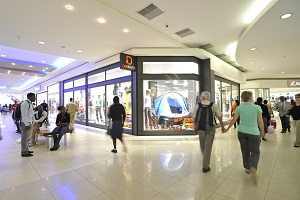
Economy set for weak post-COVID recovery experts say

The local economy is set for a relatively weak recovery from the severe slump last year, financial services firm, PSG Wealth, suggested.
PSG in its May Quarterly Economic Update said the country’s real GDP is expected to expand by only 3.1% in 2021. The economic performance deteriorated from an upwardly revised -0.6.% (previously -1.6%) in 2019 to a GDP contraction of 8% in 2020 as the tourism, transport, mining, and manufacturing industries tanked due to the adverse effects of the coronavirus pandemic.
PSG said the bounce back will be supported by lighter Covid-19 restrictions, base effects and higher commodity prices for Namibia’s key exports but constrained by a slow recuperation in services activity.
Namibia’s economy has been in a sharp downswing following the boom years of 2010-15, which coincided with fiscal expansion, rapid credit growth, and the height of the commodity super cycle. The average growth rate fell from 5.3% per year. during this boom period to an average of -0.3% per year during 2016-19.
Namibia is highly exposed to the coronavirus crisis, due to its relatively large dependence on tourism, minerals exports, public investment, and the economy of its key trade partner South Africa.
However, in the medium term, PSG sees a modest economic recovery which will be supported by new mining activities as well as the expansion of port handling, railroad, mobile network, and power generation capacities.
“The past few years have been the most challenging for the economy since independence. A lack of investment since the end of a boom period in mining, real estate, and public infrastructure has curtailed the construction industry. Meanwhile, prices of the main export minerals – diamonds and uranium – have been depressed. Moreover, Namibia has also suffered through a protracted drought,” PSG noted.
Meanwhile, PSG forecasts the fiscal deficit to narrow somewhat this year as the government cuts expenditure. The firm expects the budget deficit to narrow to 7.7% of GDP in the 2021/22 fiscal year from a gaping deficit of 9.4% of GDP in the previous fiscal year.
“We still expect some moderate fiscal slippages in the medium term given the weak economic recovery, the pressure from sharply lower customs union revenues, and the slow pace of fiscal reforms aimed to improve revenue collection and curb wasteful expenditures,” PSG stated.












































